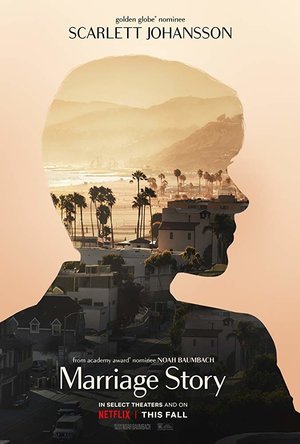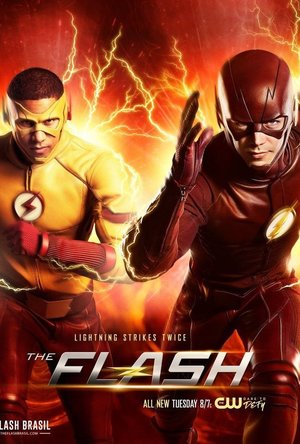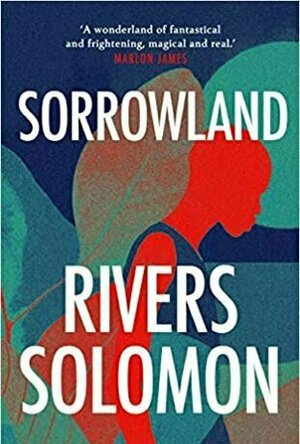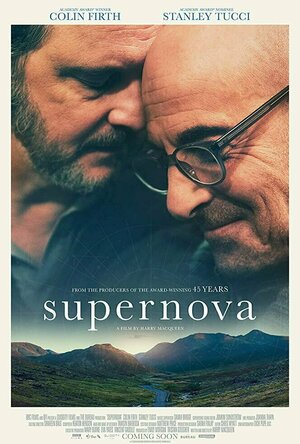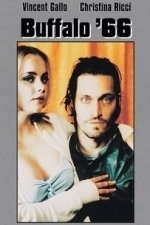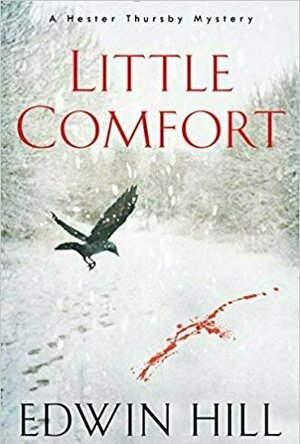Search
Search results
Hazel (1853 KP) rated Memoirs of a Neurotic Zombie (Memoirs of a Neurotic Zombie #1) in Books
Dec 17, 2018
<i>This ARC was provided by the publisher via NetGalley in exchange for an honest review</i>
One day in Ohio Adam Meltzer is celebrating his twelfth birthday when suddenly he dies from a fatal be sting. Then he comes back to life – sort of. Jeff Norton’s children’s book <i>Memoirs of a Neurotic Zombie</i> is a comical tale narrated by Adam who is, as the title suggests, a zombie.
Three months after his death Adam claws his way out of his coffin and heads home where he attempts to carry on with life (afterlife?) even though his sister has taken over his bedroom and all his clothes have been donated to charity. Oh, and his body had already started decomposing. However it is not long until he discovers that he is not the only unnatural being in his neighbourhood. Connected by their weirdness, Adam becomes firm friends with Corina (a half-vampire) and Ernesto (a chupacabra). Inspired by a school science project (being half-dead is no reason for exemption, apparently) the three of them set out to track down the bee that killed Adam and solve the mystery concerning his return from the grave.
<i>Memoirs of Neurotic Zombie</i> is full of humour targeted at nine to twelve year olds, so reviewing this from an adult’s perspective if rather difficult. As people get older child humour becomes less funny, particularly in relation to certain bodily functions – namely poo. Even though being a children’s book limits the amount of seriousness, some of the story line did not feel quite right. Adam’s parents and sister were far too accepting of the situation and the lies he told at school to explain what had happened were rather farfetched.
An important element to the story was that Adam was suffering from OCD and as a result was gripped by a fear of dirt, bacteria and disease – rather ironic considering his physical condition. There is nothing wrong with writing for children about characters with disorders such as OCD, however there was no explanation about the seriousness of this mental illness. Adam’s behaviour was used to make him appear less “normal” than other children his age – something campaigners are encouraging people <u>not</u> to think!
There were some deliberate inaccuracies in Adam’s narrative, which added to the hilarity, although how much the reader will benefit from these will depend on their own intelligence. On the other hand there were one or two errors that may not have been intentional. “I lurched forward like a tweenage Frankenstein” – surely that should be “Frankenstein’s monster”? Unless, of course, Norton intended Adam not to be aware that Frankenstein was the scientist?
The storyline overall is enjoyable and something children, particularly boys, would enjoy. Then again it may not be suitable for the more sensitive child as it deals with themes of death and paranormal creatures. Adam comes across as rather intelligent for his age – despite taking some things too literally – so there are footnotes to explain definitions of difficult words or to clarify something further. In spite of a few misgivings I would recommend this book to its intended target audience.
One day in Ohio Adam Meltzer is celebrating his twelfth birthday when suddenly he dies from a fatal be sting. Then he comes back to life – sort of. Jeff Norton’s children’s book <i>Memoirs of a Neurotic Zombie</i> is a comical tale narrated by Adam who is, as the title suggests, a zombie.
Three months after his death Adam claws his way out of his coffin and heads home where he attempts to carry on with life (afterlife?) even though his sister has taken over his bedroom and all his clothes have been donated to charity. Oh, and his body had already started decomposing. However it is not long until he discovers that he is not the only unnatural being in his neighbourhood. Connected by their weirdness, Adam becomes firm friends with Corina (a half-vampire) and Ernesto (a chupacabra). Inspired by a school science project (being half-dead is no reason for exemption, apparently) the three of them set out to track down the bee that killed Adam and solve the mystery concerning his return from the grave.
<i>Memoirs of Neurotic Zombie</i> is full of humour targeted at nine to twelve year olds, so reviewing this from an adult’s perspective if rather difficult. As people get older child humour becomes less funny, particularly in relation to certain bodily functions – namely poo. Even though being a children’s book limits the amount of seriousness, some of the story line did not feel quite right. Adam’s parents and sister were far too accepting of the situation and the lies he told at school to explain what had happened were rather farfetched.
An important element to the story was that Adam was suffering from OCD and as a result was gripped by a fear of dirt, bacteria and disease – rather ironic considering his physical condition. There is nothing wrong with writing for children about characters with disorders such as OCD, however there was no explanation about the seriousness of this mental illness. Adam’s behaviour was used to make him appear less “normal” than other children his age – something campaigners are encouraging people <u>not</u> to think!
There were some deliberate inaccuracies in Adam’s narrative, which added to the hilarity, although how much the reader will benefit from these will depend on their own intelligence. On the other hand there were one or two errors that may not have been intentional. “I lurched forward like a tweenage Frankenstein” – surely that should be “Frankenstein’s monster”? Unless, of course, Norton intended Adam not to be aware that Frankenstein was the scientist?
The storyline overall is enjoyable and something children, particularly boys, would enjoy. Then again it may not be suitable for the more sensitive child as it deals with themes of death and paranormal creatures. Adam comes across as rather intelligent for his age – despite taking some things too literally – so there are footnotes to explain definitions of difficult words or to clarify something further. In spite of a few misgivings I would recommend this book to its intended target audience.
Lucy Buglass (45 KP) rated Marriage Story (2019) in Movies
Nov 7, 2019
Divorce has been depicted many times onscreen, as it’s one of those difficult realities about adult relationships. There’s still a lot of stigma around the breakdown of a marriage, but Marriage Story deals with the topic in a very raw and unique way.
The film follows Nicole (Scarlett Johansson) and Charlie (Adam Driver) as they’re going through the turbulent divorce period. The couple share a young son Henry, who naturally causes complications for the two when it comes to custodial agreements.
Marriage Story opens with two gorgeous monologues about what the two characters love about each other, both of which are enough to make you cry a mere few minutes into the film. This contrasts very well with the present day, where they’re both struggling to make their marriage work.
It would have been very easy for Noah Baumbach to encourage the audience to pick sides, leaving them to subconsciously ‘root’ for either party to do well in the scenario. But remarkably that’s not the case, as it’s a very unbiased film that lays everything out on the table for us to see. Each messy, complicated detail is shown to us, and we end up sympathising with both.
One thing I really enjoyed about Marriage Story is the way Baumbach criticises some of the ridiculousness associated with divorce, especially when it comes to legal battles. Nicole reluctantly turns to ruthless lawyer Nora Fanshaw (Laura Dern), who is honest about the lies that have to be told in order to get through this.
Dern’s performance is hilarious but also highlights some of the inequalities and utterly baffling scenarios that happen when picking up a legal case. I wasn’t aware of any of them so it was quite a shock.
Watching the film is excruciating in places, but that’s a compliment on how raw and honest it is. It seems wrong for Charlie and Nicole to have to say and do certain things, all dictated by their respective lawyers. A clean break just isn’t possible when a child is involved.
It becomes even more complicated for the couple when Nicole decides to move back to Los Angeles, 2,789 miles away from New York City where she and Charlie used to reside. This creates a very literal distance between them, and causes problems with the battle for custody and Henry’s wellbeing.
Whilst there are many scenes which will reduce you to tears, Marriage Story has some comedic elements to lighten the mood, especially when it comes to Nicole’s family and how they react to the news of the divorce.
The two central performances in Marriage Story really are exceptional, and you become invested in the lives of people you don’t even know. One dramatic scene between Charlie and Nicole in particular had me openly sobbing, as it was full of contempt instead of love. Many of us can react to that exchange in a failing relationship, and it hurts.
If you want a very honest look at what it’s like to go through a divorce, then Marriage Story is just that. This isn’t the kind of film that sugarcoats anything and instead takes its audience on an emotional rollercoaster from start to finish.
The film follows Nicole (Scarlett Johansson) and Charlie (Adam Driver) as they’re going through the turbulent divorce period. The couple share a young son Henry, who naturally causes complications for the two when it comes to custodial agreements.
Marriage Story opens with two gorgeous monologues about what the two characters love about each other, both of which are enough to make you cry a mere few minutes into the film. This contrasts very well with the present day, where they’re both struggling to make their marriage work.
It would have been very easy for Noah Baumbach to encourage the audience to pick sides, leaving them to subconsciously ‘root’ for either party to do well in the scenario. But remarkably that’s not the case, as it’s a very unbiased film that lays everything out on the table for us to see. Each messy, complicated detail is shown to us, and we end up sympathising with both.
One thing I really enjoyed about Marriage Story is the way Baumbach criticises some of the ridiculousness associated with divorce, especially when it comes to legal battles. Nicole reluctantly turns to ruthless lawyer Nora Fanshaw (Laura Dern), who is honest about the lies that have to be told in order to get through this.
Dern’s performance is hilarious but also highlights some of the inequalities and utterly baffling scenarios that happen when picking up a legal case. I wasn’t aware of any of them so it was quite a shock.
Watching the film is excruciating in places, but that’s a compliment on how raw and honest it is. It seems wrong for Charlie and Nicole to have to say and do certain things, all dictated by their respective lawyers. A clean break just isn’t possible when a child is involved.
It becomes even more complicated for the couple when Nicole decides to move back to Los Angeles, 2,789 miles away from New York City where she and Charlie used to reside. This creates a very literal distance between them, and causes problems with the battle for custody and Henry’s wellbeing.
Whilst there are many scenes which will reduce you to tears, Marriage Story has some comedic elements to lighten the mood, especially when it comes to Nicole’s family and how they react to the news of the divorce.
The two central performances in Marriage Story really are exceptional, and you become invested in the lives of people you don’t even know. One dramatic scene between Charlie and Nicole in particular had me openly sobbing, as it was full of contempt instead of love. Many of us can react to that exchange in a failing relationship, and it hurts.
If you want a very honest look at what it’s like to go through a divorce, then Marriage Story is just that. This isn’t the kind of film that sugarcoats anything and instead takes its audience on an emotional rollercoaster from start to finish.
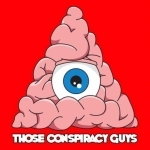
Those Conspiracy Guys
Podcast
Those Conspiracy Guys is a weekly podcast where we discuss all types and genres of conspiracy...

Perfect Arabic Intermediate Course: Learn Arabic with the Michel Thomas Method: Intermediate Level Audio Course
Jane Wightwick and Mahmoud Gaafar
Book
Already completed Michel Thomas Total Arabic? Take your Arabic to the next level with this acclaimed...
Amy Norman (1048 KP) rated The Flash - Season 3 in TV
Jul 9, 2020
Contains spoilers, click to show
This season was painfully predictable. It had so much potential but with clumsy wording, all of the surprise twists were almost immediately obvious.
I am not a huge fan of shows that take a couple of seasons to build a world and characters, and then in some small twist of fate completely change the characters, and their lives. I think Fringe was one I hated the most but it made it so much more poignant and upsetting, which is why I stuck around was completely absorbed by that show - The Flash doesn't achieve this love.
I understand that they would want to tackle the Flashpoint story arc at some point but the way they handled the fallout of this was somewhat straightforward in this season.
The introduction of a single new character, and a single new villain in the first half of the season, made it hard to ignore who it would be 🤷🏼♀️
For the latter half of the season they quite literally told you who it was, a few times at that, and plainly showed you how easy it would be for that character to become the main villain.
The dreaded musical episode (and usual loose Supergirl crossover) was included in this season. It is rare enough that a show can achieve a truly plausible storyline that you want to follow with musical numbers, and this one was a non-start for me, honestly you could probably skip it, as there is hardly any story progression, and you'll catch up soon enough in the next episode.
Musical episodes I've enjoyed previously: Buffy (the OG, and mother of so many genre specific episodes) or Scrubs.
****Real spoilers from here****
By the last episode I was just watching to get to the end of the season, and am hoping that the team will get back to doing what they do best, which is adapting to new metas and dealing with these.
There is so much potential for alternate Earth storylines, and I would love to see Cisco and Wally have some more complex stories, and character layering.
As I had kind of stopped caring by the end of the last episode I actually wanted Iris to die, and was genuinely shocked and seriously annoyed that she didn't.
So bravo to the team for making me care so little I didn't see the obvious final twist, as again they gave you all the clues, shown in a quick series of flashbacks, just to show you how little you cared that you missed it.
But I also have to commend them, as it was more heartbreaking than what we assumed was the inevitable.
Fingers crossed that the writers will break their usual Flash formula, and come up with some more original content in the coming seasons.
The Flash formula:
Work as a team >> secrets/lies >> mistrust, can't possible forgive >> someone does something stupid on their own >> big impassioned speech >> team comes together >> side character (which deserves more) gets killed, or worse >> kinda saved the day >> rinse and repeat until the end of time!!
I am not a huge fan of shows that take a couple of seasons to build a world and characters, and then in some small twist of fate completely change the characters, and their lives. I think Fringe was one I hated the most but it made it so much more poignant and upsetting, which is why I stuck around was completely absorbed by that show - The Flash doesn't achieve this love.
I understand that they would want to tackle the Flashpoint story arc at some point but the way they handled the fallout of this was somewhat straightforward in this season.
The introduction of a single new character, and a single new villain in the first half of the season, made it hard to ignore who it would be 🤷🏼♀️
For the latter half of the season they quite literally told you who it was, a few times at that, and plainly showed you how easy it would be for that character to become the main villain.
The dreaded musical episode (and usual loose Supergirl crossover) was included in this season. It is rare enough that a show can achieve a truly plausible storyline that you want to follow with musical numbers, and this one was a non-start for me, honestly you could probably skip it, as there is hardly any story progression, and you'll catch up soon enough in the next episode.
Musical episodes I've enjoyed previously: Buffy (the OG, and mother of so many genre specific episodes) or Scrubs.
****Real spoilers from here****
By the last episode I was just watching to get to the end of the season, and am hoping that the team will get back to doing what they do best, which is adapting to new metas and dealing with these.
There is so much potential for alternate Earth storylines, and I would love to see Cisco and Wally have some more complex stories, and character layering.
As I had kind of stopped caring by the end of the last episode I actually wanted Iris to die, and was genuinely shocked and seriously annoyed that she didn't.
So bravo to the team for making me care so little I didn't see the obvious final twist, as again they gave you all the clues, shown in a quick series of flashbacks, just to show you how little you cared that you missed it.
But I also have to commend them, as it was more heartbreaking than what we assumed was the inevitable.
Fingers crossed that the writers will break their usual Flash formula, and come up with some more original content in the coming seasons.
The Flash formula:
Work as a team >> secrets/lies >> mistrust, can't possible forgive >> someone does something stupid on their own >> big impassioned speech >> team comes together >> side character (which deserves more) gets killed, or worse >> kinda saved the day >> rinse and repeat until the end of time!!
Melanie Caldicott (6 KP) rated Sorrowland in Books
Apr 29, 2021
You can also read my review at my blog - https://roamingthroughbooks.wordpress.com
Sorrowland is a genre-bending book which is like nothing I have ever read before and probably ever will again!
The story centres around Fern, an albino black teenage girl who gives birth to twins, Howling and Feral in the woods after escaping from a cult called Cainland. What follows is a mindboggling adventure surrounding her survival.
This is a coming of age story like no other – part sci-fi, part horror, part dystopian, part magical realism, this book defies genre. But amongst all the myriad of twists and turns this novel takes, what lies at the heart of it is a story about a girl who comes to understand her identity and rises above what has been spoken over her in her past.
During Fern’s journey of self-discovery the book examines themes such as racism, indoctrination, abuse and misogyny. There are many challenges in reading this book as we encounter a dystopian world that is disturbingly similar to our own exploring those who live on the fringe of society due to white domination. This not only includes Cainland, the cult set up by black people originally to challenge the white belief system, but also native American characters who quietly hold onto their truth in a far less bigoted and twisted way.
I love the big questions this book asks and the twisted paths it takes in asking them leading you into such unknown territories through the plot that you meet these issues head on in such different ways that you confront them anew and reexamine how you really feel about them and the impact that they have on our world.
Sorrowland is compelling and, although this would never be a genre I would normally read, I enjoyed the enigmatic nature of the evolving fantastical storyline and the constant surprises Rivers Solomon weaves into the plot. It is extremely well-written, with powerful characterisation, rich with poetic descriptions and intelligent themes.
However, the aims of the book seem to get a little muddled at times and I became confused about what Solomon wanted me to get out of the book. The story becomes so fast-paced and dense at times that this prevented me from taking a step back and truly immersing myself in the deeper themes of the novel.
This is a hard book to review. As I said, not something I would normally read, but the quality of the writing won me over. That said, I did not come away from the book feeling a sense of enjoyment, but instead, unsettled and disturbed by encountering a story of brutality with wild, savage characters and a frightening world where nothing is as it seems.
I would recommend this book – purely because you will be changed by it and this is one of the most powerful gifts of literature – but it is not a comfortable read and would not suit everyone.
Thanks to the publishers and NetGalley for the ARe-copy in exchange for this honest review.
Sorrowland is a genre-bending book which is like nothing I have ever read before and probably ever will again!
The story centres around Fern, an albino black teenage girl who gives birth to twins, Howling and Feral in the woods after escaping from a cult called Cainland. What follows is a mindboggling adventure surrounding her survival.
This is a coming of age story like no other – part sci-fi, part horror, part dystopian, part magical realism, this book defies genre. But amongst all the myriad of twists and turns this novel takes, what lies at the heart of it is a story about a girl who comes to understand her identity and rises above what has been spoken over her in her past.
During Fern’s journey of self-discovery the book examines themes such as racism, indoctrination, abuse and misogyny. There are many challenges in reading this book as we encounter a dystopian world that is disturbingly similar to our own exploring those who live on the fringe of society due to white domination. This not only includes Cainland, the cult set up by black people originally to challenge the white belief system, but also native American characters who quietly hold onto their truth in a far less bigoted and twisted way.
I love the big questions this book asks and the twisted paths it takes in asking them leading you into such unknown territories through the plot that you meet these issues head on in such different ways that you confront them anew and reexamine how you really feel about them and the impact that they have on our world.
Sorrowland is compelling and, although this would never be a genre I would normally read, I enjoyed the enigmatic nature of the evolving fantastical storyline and the constant surprises Rivers Solomon weaves into the plot. It is extremely well-written, with powerful characterisation, rich with poetic descriptions and intelligent themes.
However, the aims of the book seem to get a little muddled at times and I became confused about what Solomon wanted me to get out of the book. The story becomes so fast-paced and dense at times that this prevented me from taking a step back and truly immersing myself in the deeper themes of the novel.
This is a hard book to review. As I said, not something I would normally read, but the quality of the writing won me over. That said, I did not come away from the book feeling a sense of enjoyment, but instead, unsettled and disturbed by encountering a story of brutality with wild, savage characters and a frightening world where nothing is as it seems.
I would recommend this book – purely because you will be changed by it and this is one of the most powerful gifts of literature – but it is not a comfortable read and would not suit everyone.
Thanks to the publishers and NetGalley for the ARe-copy in exchange for this honest review.
Lee (2222 KP) rated Supernova (2020) in Movies
Oct 12, 2020
When I first saw the trailer for Supernova, I could tell that we were in for a fairly intense depiction of dementia and its effect on loved ones, delivered by a couple of veteran actors at the top of their game. Consequently, it was one of the movies I was most looking forward to as part of this years London Film Festival, and while it wasn’t quite as full-on or emotional for me as I was expecting, that’s certainly not the fault of Colin Firth or Stanley Tucci, who are both outstanding.
“We’re not going back, you know,” Sam (Firth) says to husband Tusker (Tucci) as they head off in their campervan for a road trip. He’s referring to any items they might have needed for the trip which are left behind, but those words will prove to hold a much deeper meaning as their journey progresses. Tusker, a best-selling author, has deliberately left his medication at home, having decided that it is having no effect in his battle with dementia. When Sam leaves Tusker in the van to head into a supermarket for supplies, he returns to find Tusker missing - a frantic drive down nearby country lanes finds him standing alone, lost and confused. His mind is clearly beginning to fail him.
As they put the incident behind them and continue their journey, we get a real sense of the love and commitment they both share. As they travel through the beautiful scenery of the Lake District, they bicker and joke with each other, like a gay version of Steve Coogan and Rob Brydon series, The Trip. “It isn’t even satisfying half the time,” Tusker admits after teasing Sam. When asked why he bothers anymore, he just smiles and replies “Because of the other half.”
Tusker continues to work on a new novel, but is finding it increasingly difficult to write anymore and has instead become preoccupied with gazing at the night sky, fascinated with astronomy. Sam, a semi-retired concert pianist, has taken a break to join Tusker on one last road-trip, revisiting locations from their lives together. They stop off at the home of Sam’s sister and her family, where a surprise birthday party brings together old friends and distant family. A chance to reminisce and take stock of what the future holds as Tusker continues to deteriorate. But a discovery during the party leads to some more serious discussions between Sam and Tusker, forcing them to acknowledge and attempt to come to terms with what lies ahead for them both.
Supernova didn’t head in the direction I expected it to, or deliver it in the way I envisioned from the trailer. For the most part, it’s just simple conversations between two lovers, sometimes playful, sometimes deadly serious. But it is delivered by two incredible actors, on peak-form and with such wonderful chemistry. And while it didn’t quite leave me feeling as emotional as it did for many others who watched it as part of the festival, it certainly managed to make a lasting impact.
“We’re not going back, you know,” Sam (Firth) says to husband Tusker (Tucci) as they head off in their campervan for a road trip. He’s referring to any items they might have needed for the trip which are left behind, but those words will prove to hold a much deeper meaning as their journey progresses. Tusker, a best-selling author, has deliberately left his medication at home, having decided that it is having no effect in his battle with dementia. When Sam leaves Tusker in the van to head into a supermarket for supplies, he returns to find Tusker missing - a frantic drive down nearby country lanes finds him standing alone, lost and confused. His mind is clearly beginning to fail him.
As they put the incident behind them and continue their journey, we get a real sense of the love and commitment they both share. As they travel through the beautiful scenery of the Lake District, they bicker and joke with each other, like a gay version of Steve Coogan and Rob Brydon series, The Trip. “It isn’t even satisfying half the time,” Tusker admits after teasing Sam. When asked why he bothers anymore, he just smiles and replies “Because of the other half.”
Tusker continues to work on a new novel, but is finding it increasingly difficult to write anymore and has instead become preoccupied with gazing at the night sky, fascinated with astronomy. Sam, a semi-retired concert pianist, has taken a break to join Tusker on one last road-trip, revisiting locations from their lives together. They stop off at the home of Sam’s sister and her family, where a surprise birthday party brings together old friends and distant family. A chance to reminisce and take stock of what the future holds as Tusker continues to deteriorate. But a discovery during the party leads to some more serious discussions between Sam and Tusker, forcing them to acknowledge and attempt to come to terms with what lies ahead for them both.
Supernova didn’t head in the direction I expected it to, or deliver it in the way I envisioned from the trailer. For the most part, it’s just simple conversations between two lovers, sometimes playful, sometimes deadly serious. But it is delivered by two incredible actors, on peak-form and with such wonderful chemistry. And while it didn’t quite leave me feeling as emotional as it did for many others who watched it as part of the festival, it certainly managed to make a lasting impact.
Darren (1599 KP) rated Buffalo '66 (1998) in Movies
Sep 26, 2019
Characters – Billy Brown has just been released from prison, he has had his own problems which led to him being in prison and it isn’t long before he goes to the extremes to impress his family. He is painted as an aggressive man that believes that woman are just objects and has built his world in lies. Layla is the tap dancer that gets kidnapped, she starts to play along with what Billy wants and even enjoy his company the more time they spend together. Jimmy and Jan are his parents that have both been either distracted or strict in raising Billy, as he wants to impress them now. The Bookie is the man that put Billy in jail as a result of the debts he owed him, he gave him a choice with jail being the only one that didn’t hurt anyone.
Performances – Vincent Gallo doesn’t bring us a very interesting character, it isn’t written well or directed to make us interested in him, he just can’t make this character work. Christina Ricci was trying to break out of the child star roles by now, this is different to what we had seen before, though she does look bored through the film. the rest of the cast struggle too, it is just poorly written to give the actors a chance.
Story – The story follows a gambler that had paid the price for his addiction and now is free, he wants revenge only he spends the time with his kidnap victim as we get to see the difficult life he has had which led him to the life of crime. Well I think that is what we are meant to be seeing, the story does drag along at an awfully slow pace with nothing much happening, trying to make us believe the two could be falling in love, though he is abusive with his actions and spends more time running around looking for a toilet than showing any sort of emotion.
Comedy/Crime/Romance – If this is meant to be a comedy, the jokes miss big time as you will struggle to get a laugh out of this film, while the crime only seems to focus on the kidnapping, which she could have escaped from with ease plenty of times, so that never feels like a threat, the romance just feels awkward for the most part of the film because there is zero chemistry between the two.
Settings – The film is set in the Buffalo area, which is meant to be about the passion of the locals, it could easily be any town with a big American football team.
Scene of the Movie – The first look at the dinner table makes it a clever shot, until it gets boring.
That Moment That Annoyed Me – We spend more time looking for a toilet.
Final Thoughts – This is just a dreadfully dull movie that has no direction in anyway, it fails to capture any attention from the audience with a truly unlikeable main character.
Overall: Dreadfully boring.
Performances – Vincent Gallo doesn’t bring us a very interesting character, it isn’t written well or directed to make us interested in him, he just can’t make this character work. Christina Ricci was trying to break out of the child star roles by now, this is different to what we had seen before, though she does look bored through the film. the rest of the cast struggle too, it is just poorly written to give the actors a chance.
Story – The story follows a gambler that had paid the price for his addiction and now is free, he wants revenge only he spends the time with his kidnap victim as we get to see the difficult life he has had which led him to the life of crime. Well I think that is what we are meant to be seeing, the story does drag along at an awfully slow pace with nothing much happening, trying to make us believe the two could be falling in love, though he is abusive with his actions and spends more time running around looking for a toilet than showing any sort of emotion.
Comedy/Crime/Romance – If this is meant to be a comedy, the jokes miss big time as you will struggle to get a laugh out of this film, while the crime only seems to focus on the kidnapping, which she could have escaped from with ease plenty of times, so that never feels like a threat, the romance just feels awkward for the most part of the film because there is zero chemistry between the two.
Settings – The film is set in the Buffalo area, which is meant to be about the passion of the locals, it could easily be any town with a big American football team.
Scene of the Movie – The first look at the dinner table makes it a clever shot, until it gets boring.
That Moment That Annoyed Me – We spend more time looking for a toilet.
Final Thoughts – This is just a dreadfully dull movie that has no direction in anyway, it fails to capture any attention from the audience with a truly unlikeable main character.
Overall: Dreadfully boring.
Kristy H (1252 KP) rated Little Comfort in Books
Oct 14, 2019
Hester Thursby is a Harvard research librarian with a knack for finding things. She's good at research, so when Lila Blaine comes to her, asking for help finding her long-lost brother, Sam, Hester figures it will be another easy job in what has become a side-business for her. Hester has some extra time, as she's on leave from her job as she and her partner, Morgan, try to navigate life with his niece, Kate, whom they are caring for since her own mom has disappeared. But finding Sam--who may have left with his friend Gabe, a foster kid, isn't as easy as it seems. Sam has no wish to be found. He's now a con man who cozies up to the rich and his latest mark, Wendy Richards, a Boston socialite, has the ability to give him all he's ever dreamed of: wealth, status, security, and more. When Hester's investigation threatens this, there's no limit to what Sam and Gabe may do.
This was an intriguing mystery that definitely held my interest. Somehow it was darker and grittier than I expected (sorry, I probably wasn't giving librarians enough credit here), but that certainly didn't diminish my interest at all. The opposite really. Hester is a fascinating character, to say the least. A lot of toughness, smarts, and dedication wrapped into a tiny package (she's 4'9"). She's dealing with a lot, taking on care of three-year-old Kate and a leave of absence, but that doesn't stop her from tracking down subjects and tangling with whomever she meets. She, Kate, and their basset hound, Waffles, are on the case.
The book is told from multiple POV, so we hear from a whole host of characters, including Gabe and Sam. Hill is a wonderful storyteller, and really puts you in the shoes of his characters. And boy, are some of these folks creepy. Terrible things happen in this story, and some of these people are downright despicable. Yet, he still captures the intense longing of Gabe, a foster child, and shows how Hester, who also had a tough childhood, can identify with him. Each character is an individual with their own voice. It's incredibly easy to get caught up in the tale of Gabe, Sam, and Lila and their past at Little Comfort, a lake house, plus Hester, Morgan, and Kate (oh sweet little Kate). I read the second half of the book in one determined setting, fascinated to find out what was going to happen. It's not edge-of-your-seat suspense, per se, but it's wonderful characterization and dark, mesmerizing plotting. So many secrets, so many lies to unravel.
Overall, while this one was more complicated and edgier than I was planning going into it, that was fine with me. Hester is a great character, and I'm really excited that this is a series. Hill is an excellent writer, who knows how to hold my interest with a well-paced thriller. I'm quite looking forward to seeing what Hester is up to next.
This was an intriguing mystery that definitely held my interest. Somehow it was darker and grittier than I expected (sorry, I probably wasn't giving librarians enough credit here), but that certainly didn't diminish my interest at all. The opposite really. Hester is a fascinating character, to say the least. A lot of toughness, smarts, and dedication wrapped into a tiny package (she's 4'9"). She's dealing with a lot, taking on care of three-year-old Kate and a leave of absence, but that doesn't stop her from tracking down subjects and tangling with whomever she meets. She, Kate, and their basset hound, Waffles, are on the case.
The book is told from multiple POV, so we hear from a whole host of characters, including Gabe and Sam. Hill is a wonderful storyteller, and really puts you in the shoes of his characters. And boy, are some of these folks creepy. Terrible things happen in this story, and some of these people are downright despicable. Yet, he still captures the intense longing of Gabe, a foster child, and shows how Hester, who also had a tough childhood, can identify with him. Each character is an individual with their own voice. It's incredibly easy to get caught up in the tale of Gabe, Sam, and Lila and their past at Little Comfort, a lake house, plus Hester, Morgan, and Kate (oh sweet little Kate). I read the second half of the book in one determined setting, fascinated to find out what was going to happen. It's not edge-of-your-seat suspense, per se, but it's wonderful characterization and dark, mesmerizing plotting. So many secrets, so many lies to unravel.
Overall, while this one was more complicated and edgier than I was planning going into it, that was fine with me. Hester is a great character, and I'm really excited that this is a series. Hill is an excellent writer, who knows how to hold my interest with a well-paced thriller. I'm quite looking forward to seeing what Hester is up to next.

Jewel Mania™
Games and Entertainment
App
Jewel Mania - The new match 3 sensation is here, with brilliant jewels in over 600 dazzling puzzles!...

